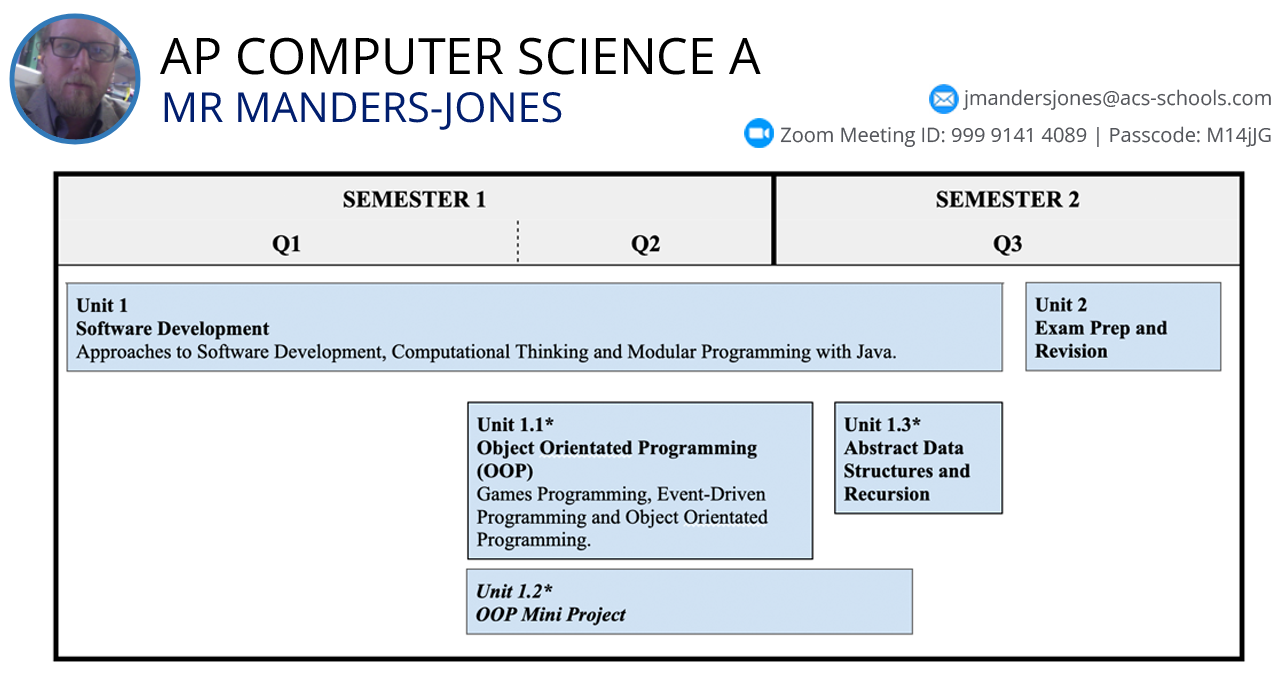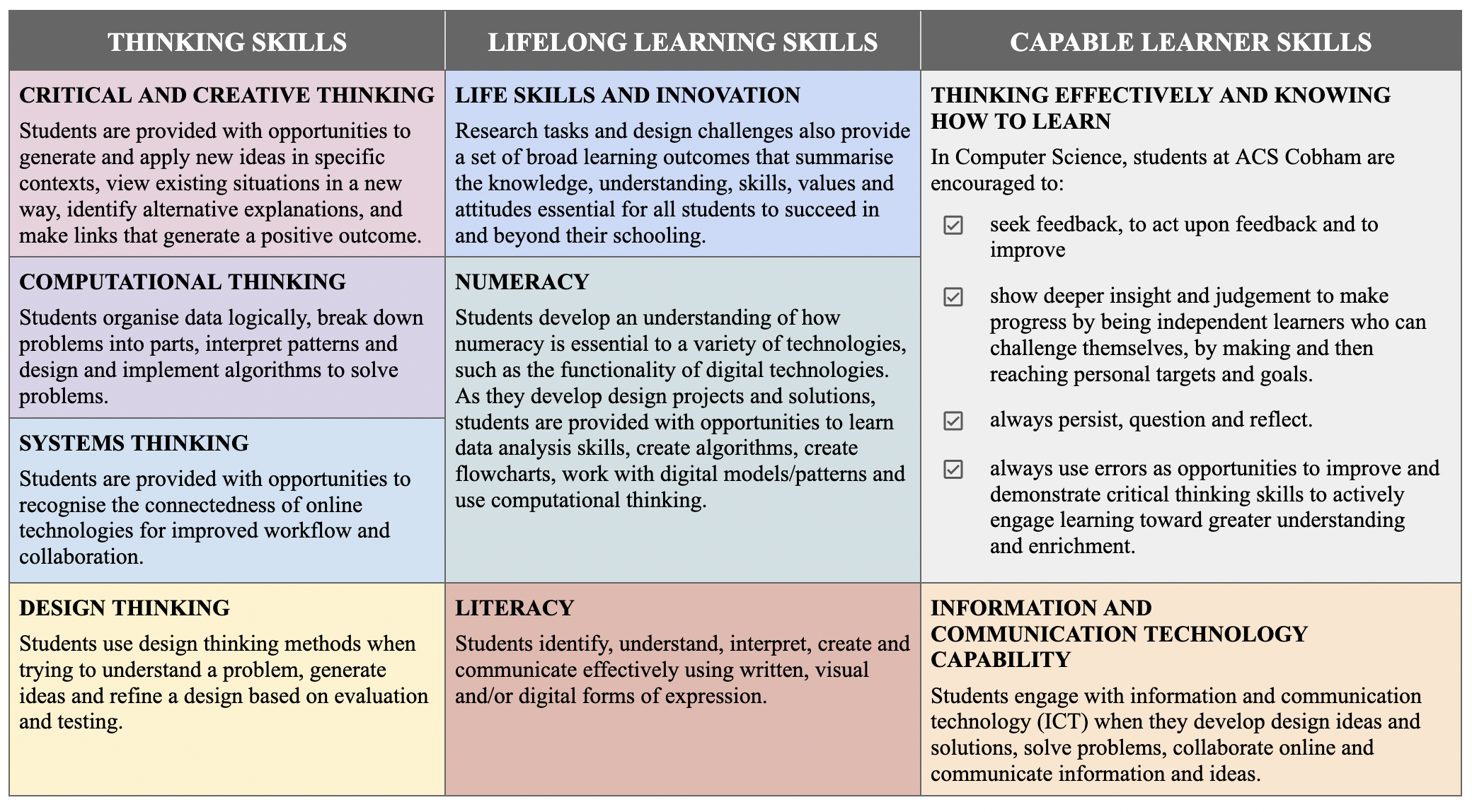-
PlanPlan

- Knowing How to Learn Best Knowing How to Learn Best
- Past Papers 2021-1999 Past Papers 2021-1999
- Daily Resources and Learning Intentions Daily Resources and Learning Intentions
- Course Overview & Assessment Course Overview & Assessment
- Enhancement & Enrichment Options and Planning Enhancement & Enrichment Options and Planning
- Prerequisite Course Content - Fundamentals in Java Prerequisite Course Content - Fundamentals in Java
- Unit 1 - Further Programming Unit 1 - Further Programming
- Unit 1.1 - OOP Programming Unit 1.1 - OOP Programming
